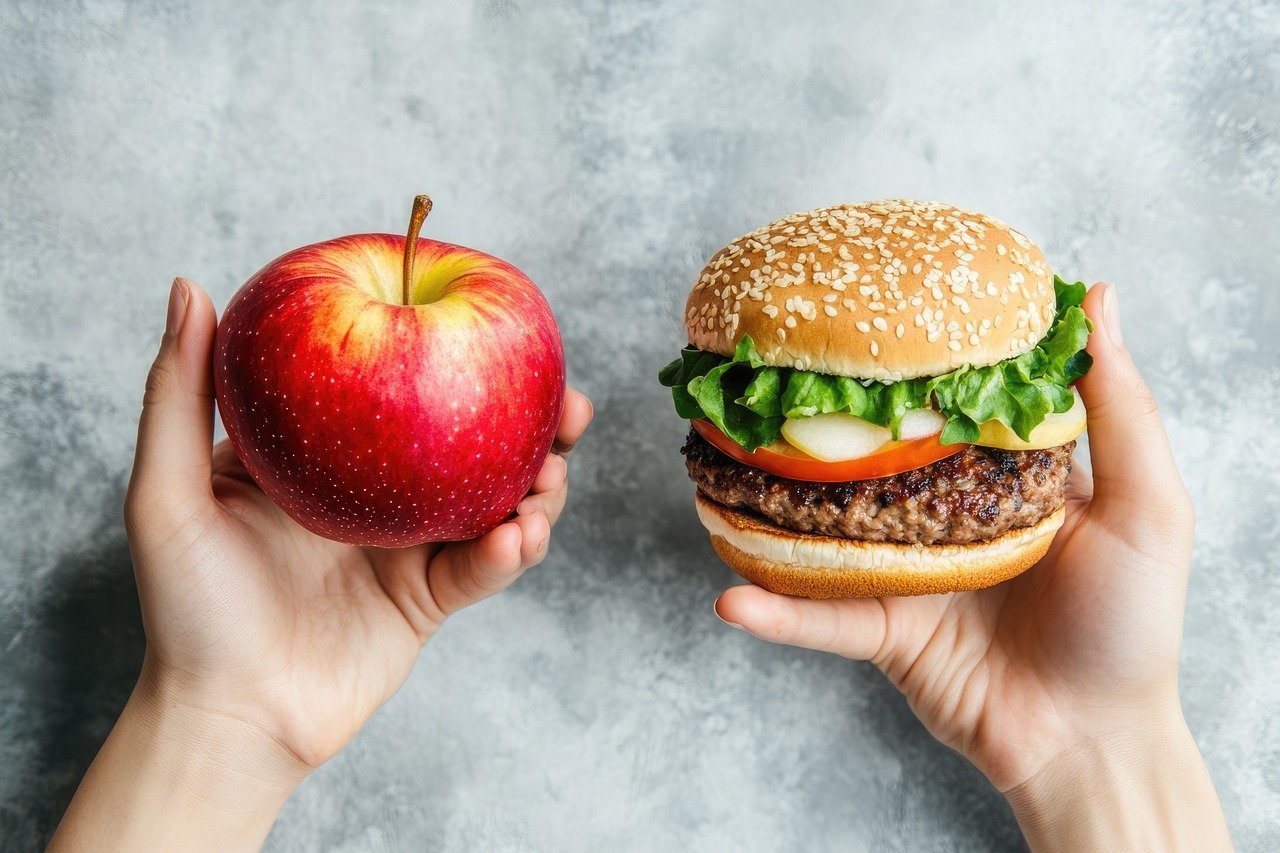Have you ever wondered which foods you should steer clear of while following a Mediterranean diet? This style of eating is lauded for its health benefits, but it’s just as important to know what to avoid to maximize those advantages. You might be surprised to learn that not everything that appears healthy fits within this diet, and some foods could potentially derail your progress or impact your well-being.

Understanding the Mediterranean Diet
A Mediterranean diet is not just a collection of food items; it’s a lifestyle that embraces a variety of nutrients, flavors, and traditions. You’ll find plenty of whole grains, fresh fruits and vegetables, healthy fats, and lean proteins on this diet. However, certain foods conflict with the Mediterranean philosophy and can undermine your goals.
The Essence of the Mediterranean Lifestyle
This dietary approach is inspired by countries bordering the Mediterranean Sea, where residents enjoy a high quality of life and low rates of chronic diseases. Regular physical activity, social eating, and engaging with family are integral parts of this lifestyle. Recognizing what to avoid helps you align your eating habits with this vibrant lifestyle more effectively.
Foods to Avoid on the Mediterranean Diet
Sugar-Sweetened Beverages
You may be tempted to reach for sugary drinks to quench your thirst, but these can lead to health issues, including weight gain and insulin resistance.
-
Why Avoid Them?
Sugar-sweetened beverages are packed with empty calories, void of any nutritional value. While you may enjoy the sweet taste, the consequences on your health may be severe. -
Healthier Alternatives: Instead, consider water, herbal teas, or infused water with fruits or herbs to bring a burst of flavor without the added sugars.
Highly Processed Foods
In your journey towards a Mediterranean diet, you might stumble upon a range of processed foods that seem convenient. However, these often contain unhealthy trans fats, high levels of sodium, and added sugars.
-
Identifying Processed Foods:
Look at the ingredient list. If you see longer, unrecognizable names or a list packed with preservatives, it’s likely not suited for your new eating plan. -
What’s Better?
Opt for whole, minimally processed foods such as fruits, vegetables, and whole grains. These will nourish your body without the unhealthy additives.
Red and Processed Meats
While a little bit of red meat can fit into a Mediterranean diet, excessive amounts or consuming highly processed meats can have adverse effects on your health.
-
Potential Issues:
Regular consumption of red meats is linked to various health concerns such as heart disease and certain types of cancer. -
Lean Proteins to Choose Instead:
Focus on fish, particularly fatty fish rich in omega-3 fatty acids, or plant-based proteins like lentils and beans. These options will keep your diet heart-healthy.
Refined Grains
While whole grains are a staple of the Mediterranean diet, refined grains, like white bread and white pasta, should be avoided.
-
Why They’re Problematic:
Refined grains have been stripped of their nutrients and fiber, leading to spikes in blood sugar and less satiety. You may find yourself hungry soon after eating, leading to a cycle of overeating. -
Better Choices: Incorporate whole grains like quinoa, farro, or whole-grain bread and pasta. They provide fiber, promote digestive health, and keep you full longer.
Excessive Dairy Products
While moderate consumption of dairy can be beneficial and align with Mediterranean practices, overindulging can disrupt your goals.
-
Understanding Moderation:
Full-fat cheeses and yogurt can be part of the Mediterranean diet when consumed in moderation, but overdoing it can up your calorie intake and lead to unwanted weight gain. -
What to Select?
Choose low-fat options and practice mindful eating to keep your portions in check.
Artificial Trans Fats
It’s essential to be cautious of foods containing artificial trans fats, which are often found in margarine, fried foods, and various baked goods.
-
The Risks of Trans Fats:
These can raise bad cholesterol levels while lowering good cholesterol, significantly increasing the risk of heart disease. -
Healthy Fats to Opt For:
Emphasize healthy fats, particularly those found in olive oil, nuts, and avocados. These will keep your heart healthy and support overall well-being.
Processed Snacks
If you reach for chips or sugary cereals, it may be time to reconsider. These snacks are often low in nutritional value and high in unhealthy ingredients.
-
Issues with Processed Snacks:
Many of these snacks are created with preservatives and unhealthy fats, which can lead to cravings and unhealthy eating patterns. -
Smart Snack Options:
Choose whole fruits, vegetables with hummus, or mixed nuts. These healthier snacks will satisfy your cravings and support your nutrition needs.
Added Sugars
You might be surprised to find that even foods perceived as healthy can be laden with added sugars. Granola, for instance, can have hidden sugars that undercut its healthiness.
-
Spotting Hidden Sugars:
Pay attention to labels, noting any variations of sugar in the ingredient list, such as syrup, cane sugar, and fructose. -
Natural Sweeteners:
When you crave something sweet, opt for whole fruits or natural sweeteners, like honey or maple syrup, but use them sparingly.
High-Sodium Foods
Processed foods, such as canned soups or frozen meals, are often high in sodium, which can lead to high blood pressure and other health problems.
-
Why Sodium Matters:
Excess sodium often results in water retention and can strain your heart health. -
How to Reduce Sodium Intake:
Prepare meals from scratch as much as possible, using natural herbs and spices for flavor, instead of reaching for table salt or processed seasoning.
Deep-Fried Foods
Fried foods may tempt you with their tantalizing taste, but they generally contain unhealthy fats and a high-calorie count.
-
Understanding the Risks:
Regular consumption of deep-fried items can lead to weight gain, increased cholesterol levels, and negatively impact your heart health. -
Cooking Methods to Prefer:
Roast, grill, or sauté with olive oil instead. This way, you maintain flavor while keeping your dish healthy.
Unhealthy Fats
Be mindful of unhealthy fat sources, particularly those found in processed and fried foods, which can wreak havoc on your health.
-
Recognizing Unhealthy Fats:
Trans fats and excessive saturated fats can lead to various health problems. Check the nutrition label and try to keep these fats to a minimum. -
Favoring Healthier Fats:
Focus on consuming monounsaturated and polyunsaturated fats found in olive oil, avocados, and nuts.
Skipping Meals
While this might not seem like a “food” to avoid, skipping meals can lead to unhealthy eating patterns and can negatively impact your experience on the Mediterranean diet.
-
The Consequences:
Depending on how busy you are, skipping meals can lead to overeating later on or choosing unhealthy convenience foods. -
Mindful Eating Practices:
Try to establish a consistent eating schedule that includes nutrient-dense meals and snacks to sustain your energy levels throughout the day.

Balancing Your Diet
Intentional Eating
As you navigate the Mediterranean diet, remember that intentional eating plays a significant role. By focusing on quality over quantity, you put your health first while still enjoying the pleasures of food.
- Meal Planning:
Consider crafting meals around nutritious ingredients and planning ahead to minimize chances of poor food choices.
Listening to Your Body
Your body is a great communicator. It often tells you what it needs, so tuning into those signals can assist in following the Mediterranean style of eating.
- Understanding Hunger Cues:
Pay attention to when you’re truly hungry versus habitually eating out of boredom or stress.
Social Commitments
The Mediterranean diet values shared meals and social interactions. While trying to stick to healthy habits, don’t neglect the social aspect of eating.
- Making Smart Choices While Dining Out:
When dining at restaurants, opt for a vegetable-based appetizer, salads, or grilled items instead of fried options.
Staying Hydrated
Staying hydrated contributes to your overall health, particularly when following a Mediterranean diet that focuses on whole foods.
- Importance of Hydration:
Drinking adequate water supports digestion and overall bodily functions, making it an essential component of any dietary approach.

Conclusion
As you embark on your Mediterranean diet journey, understanding which foods to avoid will empower you to make healthier choices that better support your lifestyle and wellness. With an abundance of delicious options available, you can find enjoyment in every meal. Remember, being mindful of your choices while embracing the vibrant flavors of the Mediterranean will lead to lasting success on your path toward a healthier you.



